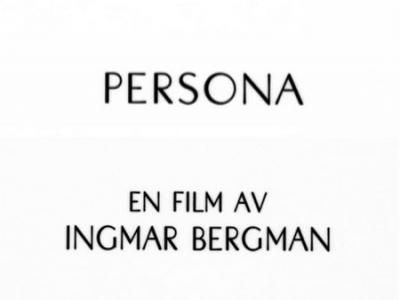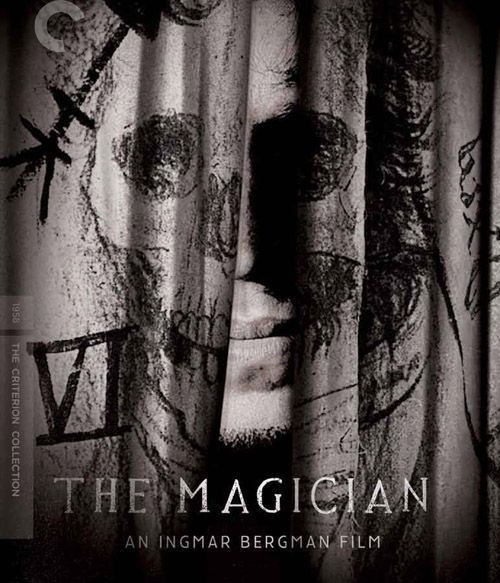
Usually I manage to blog immediately after seeing a movie, but this time I had to wait until the morning, so this will be short. You're welcome!
It'd been so long since I've seen Persona that I forgot a lot of it, including the "avant-garde" film breaks and such. I didn't immediately remember the beginning with the film starting up, the rapid onslaught of images (including a single frame of a cock) and the thin boy whose sheet won't cover his head and his toes, grasping at the projection of the young woman's face. (I watched this with Jen, who nailed it: I think that was the boy from Alma's story who became "massively" infatuated with his mother.)
Bergman films are so plain-faced in their symbolism and emotional rawness that they can be a little uncomfortable to sit through, like a best friend looking you directly in the eyes and telling you how sad he feels when he's alone. I don't think that's a bad thing, to be confronted by a film's emotional intent so boldly, just as it's not a bad thing to have your friend tell you point-blank how he feels, even if it's squirm-inducing. But I'm glad not every film does that. As to the symbolism, I confess that I was not in a mindspace (specifically, I was almost falling asleep, alas) to delve too deeply. The obvious parallels in them being parts of a single person, confusing one for the other despite looking reasonably different, are strong. The major emotional shift that happens halfway through when Alma reads Elisabet's letter is a great move, and possible saves the story for me -- if it didn't have that shift in the balance of power between them it would be exhausting.
I'm going to go read an analysis of the film by Susan Sontag now, but it would be cheating to post after reading that. (Ha, I watch a movie rich enough to finally warrant all the dismantling and exploration of symbols I like to do, and all I can say is, hey I watched it, and this beat of drama was good. Oops. Sometimes life gets in the way of a good blogpost, you know?)

